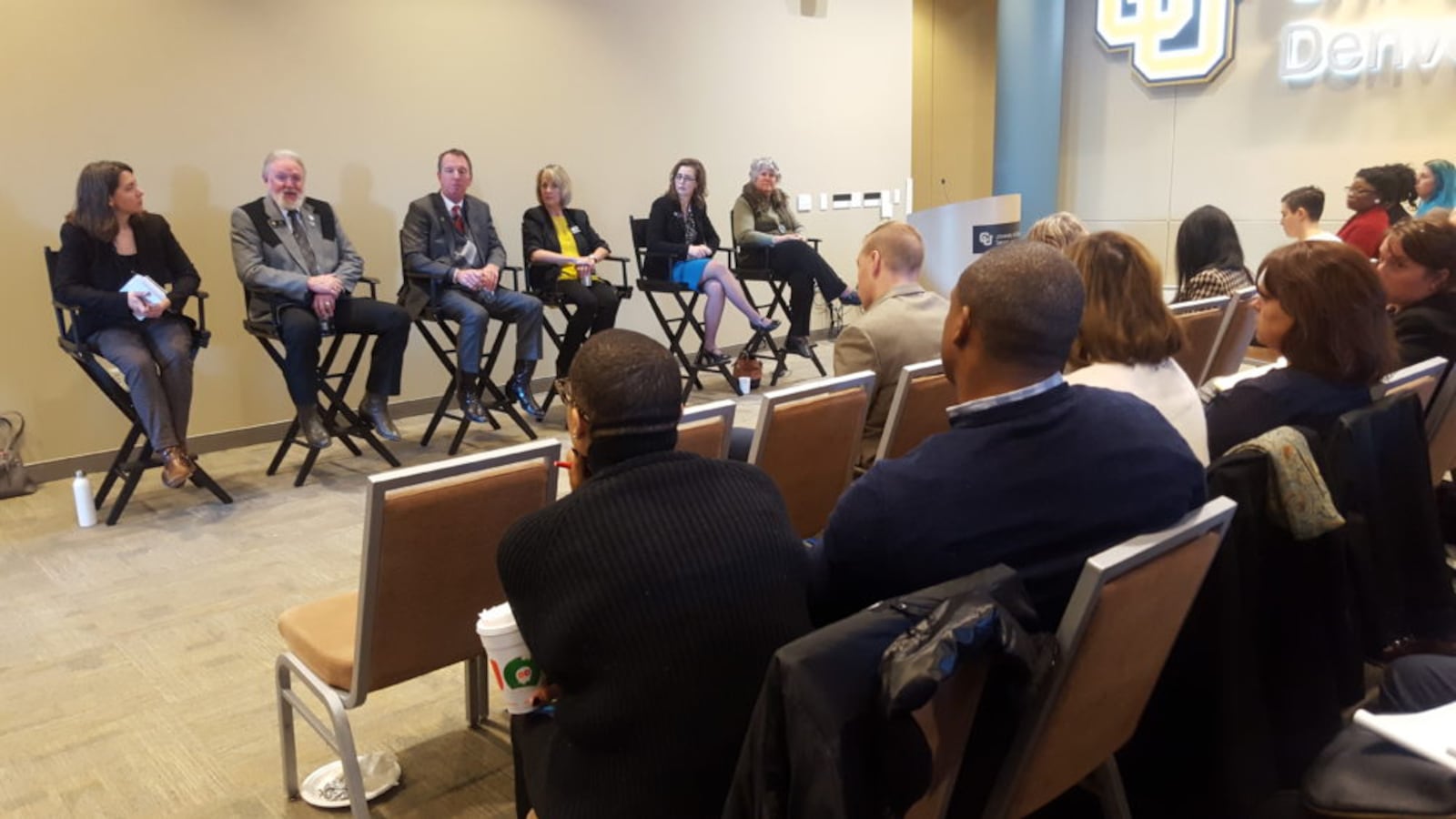There is an elephant in the room as the Colorado legislature convenes with Democratic majorities in both chambers — and it’s made of money.
Lawmakers have ambitious goals for education that include improving the preparation and support of novice teachers, attracting more teachers to shortage areas, ensuring more students learn to read and that more high school students can take college classes, and expanding mental health services in schools.
There’s a new political dynamic at the Capitol and a new governor, Jared Polis, who campaigned on funding full-day kindergarten and expanding access to preschool.
But not everything has changed.
“We still have the exact same budget issues facing our schools as we did 12 months ago, as we did three years ago, as we did eight years ago,” said state Sen. Rachel Zenzinger, a member of the Joint Budget Committee. “The budget stabilization factor is almost exactly the same as it was eight years ago.”
That factor is the amount of money Colorado lawmakers withhold from K-12 education — compared with constitutional requirements — each year to balance the budget and pay for other priorities. In the proposed 2019-20 budget, that’s almost $600 million.
At Chalkbeat’s annual legislative preview Thursday, money questions hung over discussions about potential changes to Colorado’s teacher effectiveness law or whether local districts or the state has a larger role to play in improving early literacy.
One member of Denver’s bond oversight committee asked when lawmakers would reform the Taxpayer’s Bill of Rights, which limits how much government can grow even during a strong economy and requires voters to approve new taxes. And the parent of a student with autism asked when lawmakers will bring per-pupil funding up to at least the national average.
State Sen. Nancy Todd, an Aurora Democrat who will chair the Senate Education Committee, responded with an enthusiastic, “Let’s do it,” but real change will require voter approval.
Republican senator-elect Paul Lundeen, who chaired a special committee on school finance, pushed back against the idea that Colorado underfunds its schools. In straight numbers, collected by the National Education Association each year, we’re near the middle of the pack; the commonly cited figure that Colorado spends $2,800 less per student depends on a calculation that incorporates regional cost differences.
“I would argue that it is not a shortage of money but how we are applying that money that becomes so very important to the success of public education,” he said.
Lundeen and state Rep. Jim Wilson, the ranking Republican on the House Education Committee, both defended the Taxpayer’s Bill of Rights and said voters are unlikely to overturn a constitutional provision that gives them a powerful voice in taxation and spending decisions.
However, lawmakers agreed there is momentum behind making changes to the Gallagher Amendment, another constitutional provision that helps ratchet down property taxes in rural communities. That’s had dire consequences for rural fire districts and forced the state to backfill money for rural school districts. The combined effect has been that schools don’t get all the money they could at the same time that K-12 education crowds out other needs, including transportation and higher education, in the state budget.
Any changes there would also require voter approval. But in a meeting with reporters Thursday afternoon, incoming Speaker of the House K.C. Becker and Majority Leader Alec Garnett said they believe a broad coalition will push for changes to both Gallagher and TABOR but in a longer-term process that would see a measure on the ballot in 2020.
“I think there’s will,” Becker said. “I think there’s a way. It’s not just Democrats. The entire business community knows, whether it’s infrastructure, whether it’s K-12, whether it’s the water plan, all of these things cost money and not just in 2019. This is a long-term issue.”
Becker said the exact form of the fix remains to be seen, but the goal is to avoid competing transportation and education measures, as occurred in 2018, with both measures failing. Referendum C, in which voters gave the state permission to retain money from existing taxes for a five-year period, could be a model.
In the meantime, there’s the question of how to allocate the money that Colorado does have. At the preview, Wilson reminded the audience that Colorado already has a law that phases in funding for full-day kindergarten.
Actually paying for it is a matter of priorities, and few investments provide the same kind of return, he said. And if the state picks up more of the cost, families can keep tuition money for household expenses, including child care, and districts that pick up the extra cost can reallocate that money as well, he added, a view shared by state Rep. Barbara McLachlan, a Durango Democrat who will chair the House Education Committee.
But Zenzinger gave a firm “no” when asked if full-day kindergarten should be a top priority.
“The single biggest priority is the budget stabilization factor, because that’s $600 million on an ongoing basis,” she said. “Kindergarten might not be the biggest priority in a district that already funds it.”
The state has many other education priorities, she said. Among them, “we are leaving to districts 68 percent of the cost of funding their special education students.”


